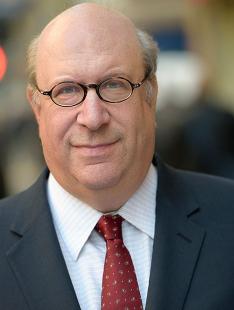In 2009, Stephen Colbert did a segment about the decision of Wikipedia’s Arbitration Committee, or ArbCom, to ban the Church of Scientology from editing pages about itself.
“The committee is made up of experts such as ‘Carcharoth,’ ‘FloNight,’ ‘Newyorkbrad,’ and of course ‘Wizardman,’” Colbert quipped. “They’re just like the Supreme Court, except their robes are bathrobes.”
Matetsky — aka “Newyorkbrad” — and his fellow ArbCom members beg to differ. By day, Matetsky works as a commercial litigation attorney for New York law firm of Ganfer & Shore. After hours, he helps to settle a wide variety of important disputes involving Wikipedia’s editors and administrators.
His first foray into the editing world of Wikipedia occurred in 2005, on the day U.S. Supreme Court Chief Justice William Rehnquist passed away. Matetsky noticed a factual error on Rehnquist’s Wikipedia page, and corrected the information on the page. “I noticed there was a mistake, and I wondered if the ‘anybody can edit’ thing really worked,” Matetsky said. “I fixed the mistake … and last time I checked the article, my edit was still there.”
Over time, Matetsky began creating Wikipedia pages and started to enjoy the writing and editing process. He also became aware of Wikipedia’s “back office” — editors and administrators who are responsible for maintaining the structure and operations of the site. Matetsky started participating in administrative discussions regarding content on certain pages and deletion requests. A number of administrators took notice and encouraged him to make a “request for adminship.” Matetsky had to post his qualifications and his interest in the position on Wikipedia’s admin page and answer questions from other admins. Ultimately, he was successfully elected by a margin of 225-2.
“This was unique for me,” he said. “I was never the popular kid. This was a new, and very fulfilling experience to be regarded this highly.”
After a year as an admin, Matetsky was elected to the ArbCom, which currently stands at 15 members. Matetsky is currently the longest-serving member of the committee (he served from 2008-14 and re-joined in 2017). ArbCom is comprised of people from around the world, in a range of careers, and it focuses on alleged misconduct by editors, as opposed to determining what the actual content of the articles should be.
“At the end of the day, the goal is, through constructive discussion, you’ll be able to reach a resolution,” Matetsky explained. “That works most of the time, but not all, and when it doesn’t, an arbitration case is the last resort.”
While the majority of content disputes arise from a small group of topics — “things that would start an argument in a bar or a dorm room,” Matetsky said — the ArbCom also hears disputes unique to Wikipedia, including user misconduct in disagreements about formatting and grammar. And in the most serious cases, the committee can ban a user from the site. “Banning someone is the worst thing that we can do,” Matetsky said. “To a banned user, Wikipedia is the encyclopedia that anybody can edit, except you.”
Despite Wikipedia’s protocols on content accuracy, Matetsky agrees that schools and universities should discourage using Wikipedia as a primary source. Wikipedia is the encyclopedia that anybody can edit, which is both its weakness and its strength.
“The best part of a good Wikipedia article is not just that it presents an introduction to the material, but that the article will be drawn from available, reliable sources,” Matetsky said, adding that the sources are “what the Princetonian should be looking at.”

